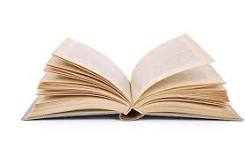
We should understand that a book review, as a literary practice, is part of literary criticism. A book review is defined as a form of literary criticism in which a book is described or analyzed based on its content, style, and merit. A book review may be a primary source, an opinion piece, a summary review, or a scholarly view. Therefore, a book review can encompass various strands, ranging from scholarly reviews to those published in newspapers, which typically lack the depth and sophistication of a scholarly piece in a literary magazine. The simplest form of review may comprise an opinion piece, which is the least sophisticated type of review.
In Ethiopia, book reviewing is not regarded as a serious endeavor, often due to ignorance about the subject or the underdevelopment of literary criticism in general. For many book reviewers without knowledge of the subject, a book is either good, very good, or bad. The level of literary development in Ethiopia is quite low, and the quality and style of writing are not well-developed. We lack professional book reviewers who are passionately engaged in reviewing books with the aim of contributing to the growth of literature in the country. Historically, journalists often produced book reviews out of duty rather than passion.
Why do we concern ourselves with books, reading, or reviewing them? The answer to this question is rather simple: books matter in our lives. Books are food for our brains, as popular wisdom suggests. We can live without reading books, but that would result in an incomplete life. Books enhance our lives and help us make life worth living. There is a similarity between books and food beyond their purpose. Just as good food is pleasant to our tastes, good books are appealing to our minds. The challenge lies in identifying good books from those that are not as good.
As a general rule, there is no such thing as “bad books.” The efforts and dreams that go into creating books are worth celebrating, even when the books are not bestsellers. People are often unaware of how much energy, time, and thought it takes to produce books. While books may vary in their subject matter and the way they address specific issues, there are no truly bad or useless books. Even a poorly written book might offer some wisdom to the reader. The usefulness or quality of books does not depend solely on individual tastes but rather on a common consensus or collective perception of what is good or bad for the majority. Just as we identify good food by tasting it, we can recognize good books not only by their covers but by reading them critically, aiming to separate the grain from the chaff. A book review is, therefore, a literary device that helps us differentiate the grain from the chaff.
So, what is a book review? Why do we analyze or discuss books? A book review is a critical analysis of a published book, providing a summary of its content and evaluating its strengths and weaknesses. It often includes an assessment of the book’s value, effectiveness, and contribution to its field. Essentially, a book review helps readers decide if a book is worth their time and provides context for understanding its significance.
A book review cannot be done without skill and knowledge. A book reviewer is often what we may call a “bookworm.” This person has read many books. When we say reading, we mean genuine reading, not skimming or fast reading. Book reviewers are like book publishers who read every manuscript seriously and cautiously before sending it to the printers. For this reason, reviewing books has its rules and procedures, without which the review will lack knowledge or professionalism.
Here are some of the rules of book reviewing. How do we write a book review? Start by introducing the book and providing a brief summary of its content. Discuss what you liked and did not like about the book. Be specific and use examples from the text to support your points. Discuss the strengths and weaknesses of the author’s writing style.
There are four stages of writing a book review. The first is introducing the book, which involves stating what the book is about. The second stage is outlining the contents of the review. What will the book review include? What important points should not be omitted? If the reviewer misses the gist of the book, they miss the entire content. The third stage involves highlighting parts of the book by selecting particular chapters or themes. This is a crucial step in providing readers with selected passages. The selection should be made carefully and should include parts of the book that give a comprehensive idea of its subject matter and style.
The selection of important passages must reinforce the previous steps, namely introducing the book and outlining its contents. The fourth and final step is to provide a detailed evaluation of the book. This is largely a subjective assessment from the book reviewer, summarizing their opinion, which the reader may or may not agree with after reading the book.
A book review, like any intellectual exercise, has a purpose. The purpose of a book review is to provide a valuable, solid, informative, and critical summary of a well-defined topic or area for the reader. The phrase “critical summary” is important here because one of the objectives of a book review is to help the writer—who will certainly read any review of their work—have a balanced opinion about their work and improve shortcomings in future writing.
Book reviews can be broadly categorized into descriptive, critical, and comparative reviews, each offering a different perspective on the book. Additionally, reviews can be tailored for specific audiences such as students, professionals, or academics. Other common types include endorsements, trade reviews, reader reviews, and editorial reviews, each serving a distinct purpose in the publishing landscape.
In this way, a critical summary of a book also serves as an opportunity for the author to improve their writing in the future. For this purpose, the writer should be open-minded and tolerant of both negative and positive criticism of their book. This will help them evaluate themselves more objectively and understand how their work is perceived by readers, as the reviewer is also a reader.
A book review might include both fictional and non-fictional works, but the method of review may differ. If the book under review is fiction, the reviewer should pay special attention to the four main elements of any fictional work: character, setting, situation, and theme. Fictional stories explore human lives that develop within specific fictional or real environments.
If the work in question is non-fiction, the reviewer must have adequate knowledge, if not mastery, of the subject matter. If the book is about science, geography, or history, the reviewer should choose a subject with which they are well acquainted, enabling them to assess the strengths and weaknesses of the author’s approach, style, methodology, or general knowledge.
If the book is promotional, focusing on a specific industrial product, the reviewer’s opinion might significantly impact the product’s market performance. In this case, the review should accurately reflect the quality of the product being discussed. If the review exaggerates or undermines the product’s quality, it will affect potential buyers’ attitudes. This is an area where reviews are important because companies can use ratings and reviews to gain valuable insights into the features that customers like or dislike, helping them fine-tune products and services.
Another essential skill for book reviewers is good writing. Unless the review is written clearly, concisely, and stylishly, readers may find it confusing or biased regarding the true quality or defects of the work. Consequently, good reviews should be well-written. It’s crucial that they are easily understood by other consumers, and proper spelling and grammar will help ensure this. To make your content as accurate and digestible as possible, avoid using abbreviations or slang.
As we can see, book reviewing is a significant intellectual activity that develops and promotes both writers and reviewers alike. To be a good book reviewer, one must read many books on various subjects, or they can specialize in one area. Reading widely is a reliable way to acquire knowledge and intellectual confidence. In a country like Ethiopia, where literature and book reviewing are not well-developed, it is imperative to teach the coming generation the art or science of book reviewing, which can serve as a source of knowledge, income, and public recognition.
BY MULUGETA GUDETA
THE ETHIOPIAN HERALD SATURDAY 21 JUNE 2025





